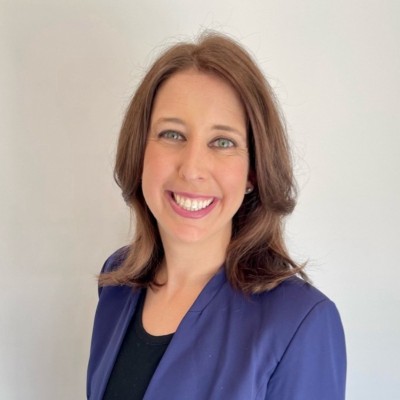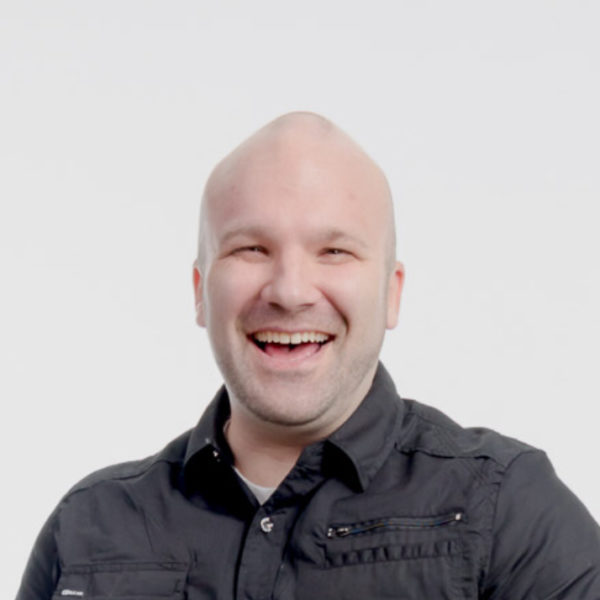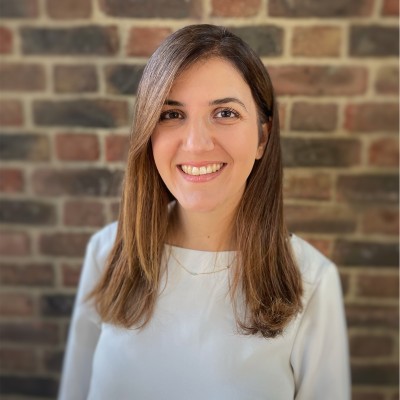Episode 141: Ashley Crisostomo on Building a Strategy to Evolve with Sales Needs
2.7K Views | 11 Min Read
Shawnna Sumaoang: Hi, and welcome to the Sales Enablement PRO podcast. I’m Shawnna Sumaoang. Sales enablement is a constantly evolving space and we’re here to help professionals stay up to date on the latest trends and best practices so that they can be more effective in their jobs. Today, I’m excited to have Ashley from Reddit join us.
Ashley, I would love for you to introduce yourself, your role, and your organization to our audience.
Ashley Crisostomo: Sure. Hi, my name is Ashley and I’m the principal sales enablement program manager at Reddit. I’ve been at Reddit for about one year. I just passed my one-year mark on January 21st, and I was the team’s second hire. My focus has been primarily to build out our new hire program and our go-to-market efforts from the ground up with an emphasis on creating scalable programs. We are a small but mighty team that has grown over the past year to support the Reddit sales organization. We do a bit of everything from running our core programs like onboarding, go-to-market efforts and seller skills. We’ve recently expanded our efforts to support education for our external customers and partners.
SS: That sounds like a lot of things to do for a tiny and mighty team. Ashley, I’m so excited to have you here. You actually caught my eye because in a recent interview, you said that the past year really taught you the importance of flexibility and creativity in executing your sales enablement strategy. I’d love to hear from you, what are some of the ways that you adapted your plans to continue to really deliver impactful results in the midst of all of the change that we had last year?
AC: Yes. Last year it was super interesting. I only had about four to five weeks in the office to meet people before we went on lockdown. So, it was an interesting year for me, but our old normal looked like everybody else’s early enablement programs. We were hosting orientation for all new hires in-person during their first week. When they were flown into headquarters, we hosted lunches, facilitator-led training sessions, and they were able to hang out with their new cohort all week.
Our director of enablement had led the charge on go-to-market efforts and sellers really love the interactive product sessions that we had. She designed desk drops with printed note cards with key value statements on them and with stickers for major releases to get sellers excited for what’s to come. So, everything was very in-person related and they needed that face-to-face interaction.
As soon as lockdown happened, we had to pivot quickly like everybody else. We pretty much just took everything that we were doing in real life and threw it up on Zoom, on live sessions. But as many people experienced, the Zoom fatigue was really real. It was really apparent early on that we knew we had to move fast on our scaled strategy. For our new hire program, we went heads down to pilot our first four on-demand courses for new hires. We really doubled down on a polished learner experience and released our LMS with some fanfare because we knew we really had to rely more on on-demand training while everyone was remote.
The other thing we did was to change all in-person or live training time that we used to have to be opportunities to connect with their coworkers and salient leaders. Instead of being passive in a training session, we really just wanted to cultivate a more cultural experience and merge them into Reddit because they didn’t have the opportunity to meet people live. When we were able to move all of our training to on-demand, it just really better avoided Zoom fatigue.
Then when it came to go-to-market, we turned those desk drops that we had to virtual internal marketing campaigns. We started creating fun gifts all with our value props. We were really lucky to be at Reddit where we can fully embrace creating weird and entertaining gifts and videos full of memes and Reddit humor. So, we had the opportunity to just lean into that and give everybody a good time.
SS: I love that creativity. How are you going to be incorporating some of the lessons learned into your strategy and plans for this year though?
AC: Well, the good news is remote working really just expedited our plans to scale and develop our strategy by creating those on-demand experiences. Now that we’re seeing faster growth this year, we’re fortunate to have already established our foundation and are prepared to evolve really rapidly and grow with the company. Now, we look forward to challenging ourselves to find even more creative ways for our teams to learn, especially as we’re still remote.
We don’t really know what that timeline looks like. So, things like podcasting, things like fun games, anything to keep them engaged, but not have to force them into a Zoom session. We will look forward to like evolving in that way after our foundational creation last year.
SS: That’s fantastic. Now, when you’re going about crafting your sales enablement strategy, who all needs to be involved? Who are some of the core partners that you work to align with within your organization at Reddit?
AC: Yeah, we’re pretty much the center of everybody, the bridge connecting everything across all teams. So, we have great partnerships with our business and product team marketing teams, our product managers who are essential subject matter experts, our data teams. Really, we are the eyes outside of the sales organization directly and the bridge that connects them to our sales team. But more importantly, our strategy needs to align with our sales leader’s strategy. We work closely with them to identify their needs and priorities for the upcoming quarters or the upcoming year, depending on the planning cycle.
SS: And speaking of leaders, I’d love to hear from you some advice for our audience of sales enablement practitioners around how they can gain buy-in from executive stakeholders on their sales enablement strategy.
AC: Definitely. That’s super important. Never plan in a vacuum. But really, my advice is to start with their strategy, work with their time, use their language. A lot of the enablement has concepts and language that is just foreign. While it makes sense and really aligns with them, it’s foreign to our sales leaders. So, make sure to use their language. Our sales strategy should dictate enablement’s roadmap, and if possible, anticipate what the company’s priorities are. In our case, the writing on the wall was for a super growth year. So, we planned for scale. But I think my pro tip is always to save some space in the team’s capacity for anything that will inevitably come up during the year. Try not to be married to a roadmap, but really double down on that macro strategy that can evolve with the sales needs.
SS: Awesome. That’s fantastic. Now, you’ve mentioned this a few times during the podcast but Reddit, as you said, is experiencing a lot of growth at the moment. How do you plan ahead for rapid growth and really ensure that you have the scalability of your enablement programs?
AC: Yeah, so we were really lucky enough to start growing the team and developing our strategy right as remote working started. We didn’t have any old programs or default habits that we weren’t ready to let go of yet. We were really able to start from scratch and think scale from day one. Our team grew and strategy developed with scale and growth in mind from the beginning. That means letting go of relying on purely instructor-led or live training, investing in blended experiences and developing strong training online for our current sellers and our new hires.
I think the silver lining of the past year is that our growth was intended for 2020. We were going to have to build the ship while we were sailing it. But with the pandemic, like everyone else, we began to be conservative with our hiring efforts. That bought us time to prepare, to hit the gas in 2021. We were able to actually have time to build in lieu of this year, which this year we’re definitely putting our foot on the gas.
SS: Absolutely. I think a lot of other organizations are in a similar boat. Tell us then, what does success look like for you this year and what are some of the core metrics that you’ll be measuring to really prove and demonstrate business impact?
AC: Yeah. After we’ve built our foundation, it’s like fast forward to really aligning our metrics and our goals and doubling down on what is successful in the long-term beyond just our foundational programs. We align our programs with business goals. For new hires, we continue to drive down our seller time to productivity. That is and has always been our metric there for go-to-market and product training.
We align with our product teams to look at sell-through rates and are, ideally this year, moving to a more evergreen or always-on type of partnership with our customers that take advantage of multi-product solutions. Again, product has those benchmarks that we can contribute to. As we expand to external customer training this year we’re looking at improving consideration and reducing the friction to our customers to learn how to leverage Reddit to reach their marketing goals.
SS: Those are fantastic metrics to be tracking. Ashley, thank you so much for taking the time to talk to us today. I enjoyed the conversation.
AC: Thank you so much for having me.
SS: To our audience, thanks for listening. For more insights, tips, and expertise from sales enablement leaders, visit salesenablement.pro. If there’s something you’d like to share or a topic you’d like to learn more about, please let us know. We’d love to hear from you.














